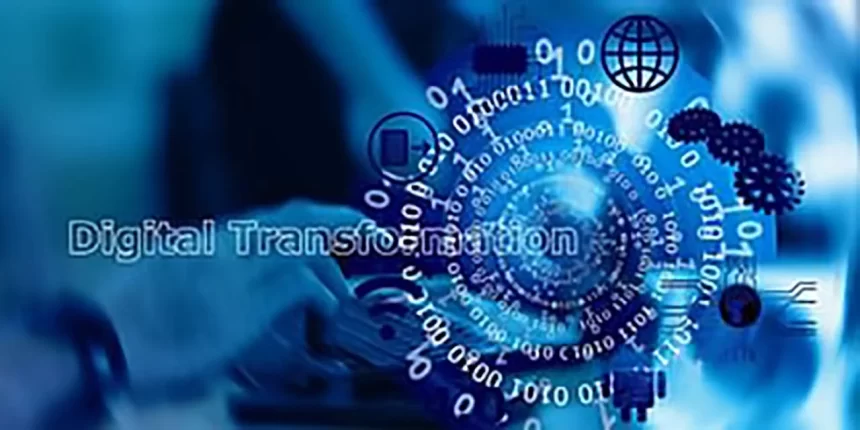Although COVID 19 has created a ruckus within the human community across all countries and continents, however, this will alter the business models, working environments, and digital transformation journeys within an organization for the future. Humans are resistive to change, and many companies have encountered obstacles to adapt in a new manner, which ranges from resistance from the senior management, middle managers, or organizational personnel, or even in it altogether. Also, customers were not wholly digital savvy and did not seek out digital alternatives even though they had the consideration of their convenience when performing transactions through traditional mode, while millennials are an exception.
Because digitization is a requirement imposed by the organization or the ongoing conditions to the employees by factors such as competition, peer pressure, investor pressures, market decline, sales decline, many businesses have begun to implement digital changes. The improvements were minimal and could be a shift in the UI surface level or allow companies to do so digitally through various modes like online/mobile or other customer-facing platforms or improvements to the back end infrastructure but failing to meet an end-to-end automated customer journey. Many of these changes, though, did not allow the company to expand for their business, and the end consumer or the ultimate beneficiaries rejected the changes and opted for organizations that had a better digital perspective.
The financial sector and banks industry were early adopters of digital transformation with real-time electronic money transfer, Automated Teller Machines, mobile or web client transactions, digital customer on boarding, digital document storage, API/BPM/RPA driven workflow for automation, etc. Many sectors followed suit with digital supply chain, banking digitization, airline and transportation, consumer goods, cars and transport, manufacturing, retail, and the like. Although digital is a journey with more and more inventions and discoveries spreading rapidly through multiple industries around the globe, the idea of a completely digital industry or digital country is far from reality, or an idea that has never inspired humankind.
With COVID 19, implementing a digital and contactless system for business transactions between individuals or companies or government or cross-border trade (B2B, B2C, B2 G, and G2 G, etc.) is a forced transition for human society. In the latest digital paradigm post, COVID 19, the countries that follow this approach are more likely to succeed. In the exception of physical goods that must be transferred between parties, all other underlying workflows will be digitized, and human interactions will be avoided. Robot drones with sensors can be deployed to complete the collection for the physical items to be transported. Contactless systems using large carriers can be used for massive machinery delivery. Human interaction will be minimal and contactless except were skilled, and AI is needed, in cases where an AI/ML computer cannot execute and are of little use. Trade between countries can only begin and thrive when the preconditions of a new digital world are met.
As society and countries have developed and modernized, there was a distinction between Developed/Developing, East/West, Nuclear/Non-Nuclear, but in the new world order, contrast is likely to be just between digital and others. Countries and societies would refuse to trade with other countries unless it is necessary and vital if it falls into the traditional framework. On this basis, there may be a probability of separating human societies between countries expanding further.
The next phase of digital transformation must grow after COVID 19 in the banking industry that has initiated the digital transition. In the aftermath of COVID 19, cash, card, paper, checks, etc. will be partially or entirely replaced. Selling and marketing business models will be virtual, and travel will be limited except where it is necessary or where digital contract documents are at risk of execution. Despite this shift, there may be few industries that are likely to be affected unless they are entirely digitized and contactless like the airline and transport industry, etc.
As the community progresses, this new order must ensure that minimum computer or mobile literacy is required for all people to be added to the current 3R’s (reading, writing, arithmetic) that will be computer and mobile competencies. This information will be necessary for basic problem shooting and troubleshooting that involves scanning, downloading software, cloud space and data acquisition, and the specifications of possible technological disruption. With a new set of digital upliftment involving all stakeholders – customers, companies, IT suppliers, investors, companies will survive and prosper. For investors to back up, the minimum condition based on the latest digital order would have to be met in the future when any company is likely to emerge.
Housing apartments were designed earlier based on bedroom, hall, and kitchen requirements, which are likely to change to accommodate a person’s workroom. Although large office spaces are expected to decrease, and more and more businesses will move to a contactless digital world with all the facilities offered at home to work for the employees, there will be more empty rooms, fewer cars on the road and dramatic emission reduction that could address some of the pre-existing environmental problems faced by humanity.
COVID 19 has put the economy to its knees shattering the world’s businesses and economies. Those challenges, however, provide emerging companies with the potential to thrive on the basis of a modern digital world that is fully digital and contactless. Digitalization has earned a new definition and will hit more new areas ever. The world is aware of introducing ways and means to mitigate humanity’s damage. This is the best time to concentrate on digital transformation by speeding it and recognizing its requirements. It will, of course, contribute to a ‘lesser direct interactive human culture,’ but that could be the way that the ‘nature’ decided to restrain us – the human beings who have done enough harm to the world in every way possible. Just like in the past, human beings used to find new ways to combat this, but the modern world will no longer be the same – the feelings and interdependence of the business relationships will vanish and pave the way for a fully mechanized and digital relationship.










